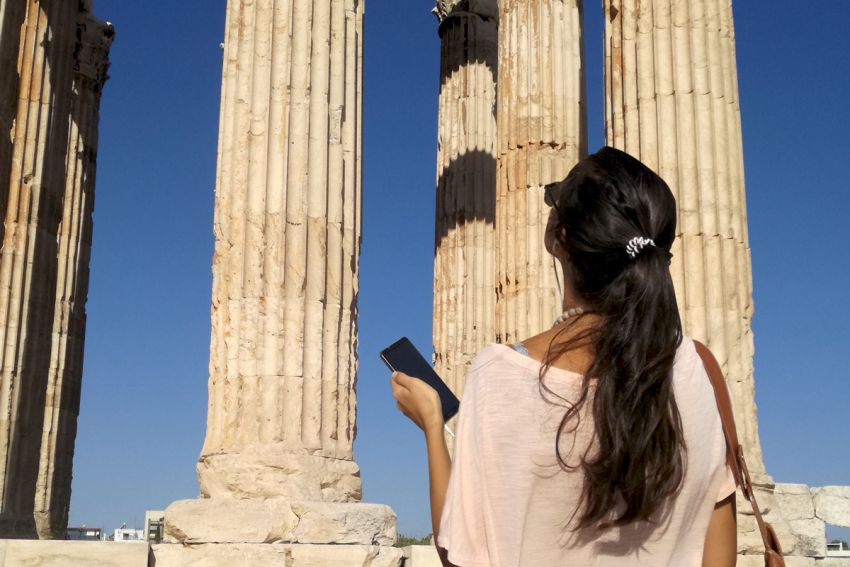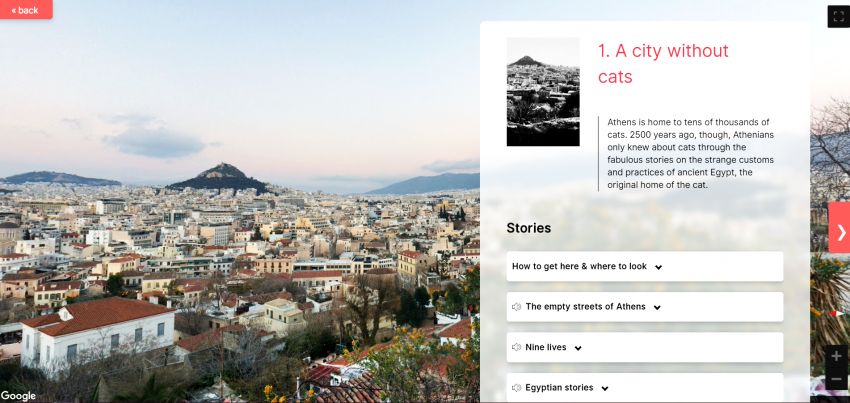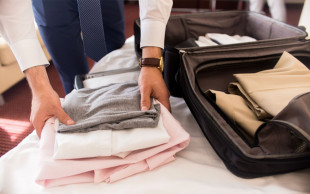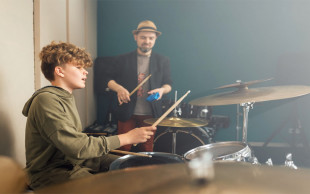In today's pandemic stricken world where all travel has halted, it's no surprise that many have turned to digital experiences to satiate their wanderlust while they are stuck at home. Contrary to what you may have thought, online tours and virtual experiences are not exactly a new concept, with the term "virtual tour" actually dating back to 1994 in a 3D reconstruction of England's Dudley Castle as it was in 1550 (fun fact: one of the first users of a virtual tour was Queen Elizabeth II).
In this travel talk, we meet Andreas Fatourous, one of the founders of Clio Muse Tours, an award-winning tour-guide app that has served travellers over the world with their offering of self-guided audio tours and virtual tour experiences for museums, temporary exhibitions and city walks in 11 countries (including Greece, Italy, Turkey, Spain, the Netherlands and Germany). Covering a wide area of topics from history and mythology to gastronomy and architecture, Clio Muse Tours has also collaborated with numerous world-class cultural institutions and have created and curated over 300 audio tours.
What’s your backstory and how did Clio Muse Tours get started?
Clio Muse Tours was founded in 2014, two years after me, Daphne Tsevreni, and Yiannis Nikolopoulos met at an entrepreneurship seminar in Athens, Greece. Our common vision to create an international network that promotes cultural heritage and puts museums in the foreground of tourism sparked the idea for the Clio Muse App.
The vital ingredient that turned the idea into reality was our different backgrounds. Daphne holds a bachelor’s degree in Business Administration, Yiannis is an Electrical and Computer Engineer, while I have an academic and professional background in Historic Preservation and Conservation,
Today, the Clio Muse team consists of historians, archaeologists and researchers, software and computer engineers, marketing and finance specialists, authors and copywriters.
Tell us more about your storytelling methodology and process in crafting your virtual tours and experiences.
Our audio tours are created following a specific methodology that guides visitors through exhibition halls and cities’ streets, highlighting the beauty and the importance of historical monuments and landmarks. We developed our storytelling methodology after extensive research we did in collaboration with some of Greece’s most prominent cultural institutions.
From 2012 and for the next two years, we interviewed museums, attended seminars on cultural heritage, designed mockups, ran pilots and questionnaires to our potential customers. The funny thing is that most museums we met along the way, wanted to become our clients, but as we weren’t a legal entity, we didn’t have the right to make contracts. So, Clio Muse Tours was officially re-born in 2014. This time with legal rights and obligations.
The pillar of Clio Muse Tours’ foundation was to create an exceptional travel experience that will bring travellers to museums. Since day one, our vision has been to generate universal cultural awareness and guide people in every part of the world, utilizing pioneering technology.

Image: Temple of Olympian Zeus (Olympieion)
A physical visit to the site was both the prerequisite and the objective for Clio Muse Tours. However, when the COVID-19 outbreak hit, we were forced to step up the pace for the launch of our virtual tour experiences. This project was already in the pipeline, but we had decided that our audio tours were our priority.
Our first 23 virtual tour experiences were completed and published in the first two weeks of the COVID-19 lockdown in March 2020. We chose our top-rated audio tours and transformed them into virtual tour experiences by combining 360° satellite and street views and our authors’ captivating narrations.
We used all the knowledge we’ve acquired through our customers’ comments and clients’ feedback to provide an equally worthy experience for those stuck at home.
How has the Covid Pandemic affected you and your business?
The Covid pandemic was a hard hit for Clio Muse Tours. We are an IT company operating in the tourism and the culture sectors, two of the most-affected industries. The best and the worst part is that 2019 was a great year for us. We saw a 12 times growth in our revenue and the highest sales on our audio tours serving 50,000 travellers from all over the world.
Therefore, in 2020 we were preparing to expand to more destinations, form strategic partnerships with major online travel agencies and grow our team. Instead, we slowed down our plans for openings to new markets and focused on the culture industry.
Since March, we have taken on several cultural projects for museums and organizations which shows that there is a higher need for digital content. The worst effect of the Covid-19 pandemic was that we had to cut down our team by 30%.
What are your thoughts about the pandemic’s impact on travel and tourism, and when do you think things would recover and get better?
That’s a tough question to answer regarding that the pandemic is still here. The news for the newly-found vaccine fills us with hope, but I believe we still have a long way to go. Predictions show that 2021 will be a good year for the tourism industry, and things will have completely returned to normal in 2022.
The only thing I can say with certainty is that the tourism and travel industry won’t be the same. The need for adopting more sustainable practices was already apparent, but the pandemic brought it to the foreground.
About Your Experiences: What are your most popular virtual experiences, and what makes them so popular?
The virtual tour experiences that have gained people’s interest are the ones presenting the most popular landmarks.
In Greece, it’s of course, the one of the Acropolis Hill since it’s a world-class monument that fascinated people for several centuries now. Knossos Palace in Crete is the second most sought-after virtual tour in Greece.
In Italy, the Doge’s Palace has been a great success. I believe that it has to do with the fact that it has high-quality content and that’s what matters the most for travellers.

Image: St Peter's Basilica Virtual Tour
Also, the virtual tour in Alhambra Palace in Spain has been well-liked. It is the country’s most-visited monument, and with our 360° satellite and street views, visitors can see the Granada from above.
Last but not least, the popularity of virtual tour experience to Hagia Sophia in Istanbul has been raised since the historic building was turned into a mosque earlier this year.
Inspiring Takeaways: What have been your biggest lessons learned in the last year?
In the last year, we all got valuable lessons on many levels - the most important of all being to respect our planet and never forget that we are just guests for a brief moment in life.
At a professional level, we learned the hard way that nothing should be taken for granted. The efforts of a lifetime can be wiped out in a moment. Having the right people as your team is essential.
On a personal level - and I hope my colleagues will forgive me - is that I still believe that no matter how good a virtual tour experience is, nothing compares with a physical visit.
Following the cats of Athens in Plaka and smelling the bloomed flowers, entering the Doge’s palace and taking a journey back in time, or walking in the Red Light District and seeing history coming alive. I feel lucky that during all these months I could escape my room by taking virtual experiences, but I am looking forward to travelling again.

Image: On the Prowl: The Cats of Athens Virtual Tour
Future Plans: What’s in the works for 2021, and the next five years?
If you had asked us before the pandemic, we would have a complete plan to present. Now, we have like 2 or 3, you know, just in case. All joking aside, the pandemic reminded us that we are a multifaceted company operating in two industries, and we must always put the same effort and maintain collaborations in both of them.
Hopefully, we’ll be able to continue and complete the plans for strategic partnerships that Covid-19 interrupted and form more collaborations with museums. Besides, we were half a step away from beginning to scale up and trust me, we are ready for the big leap.

















